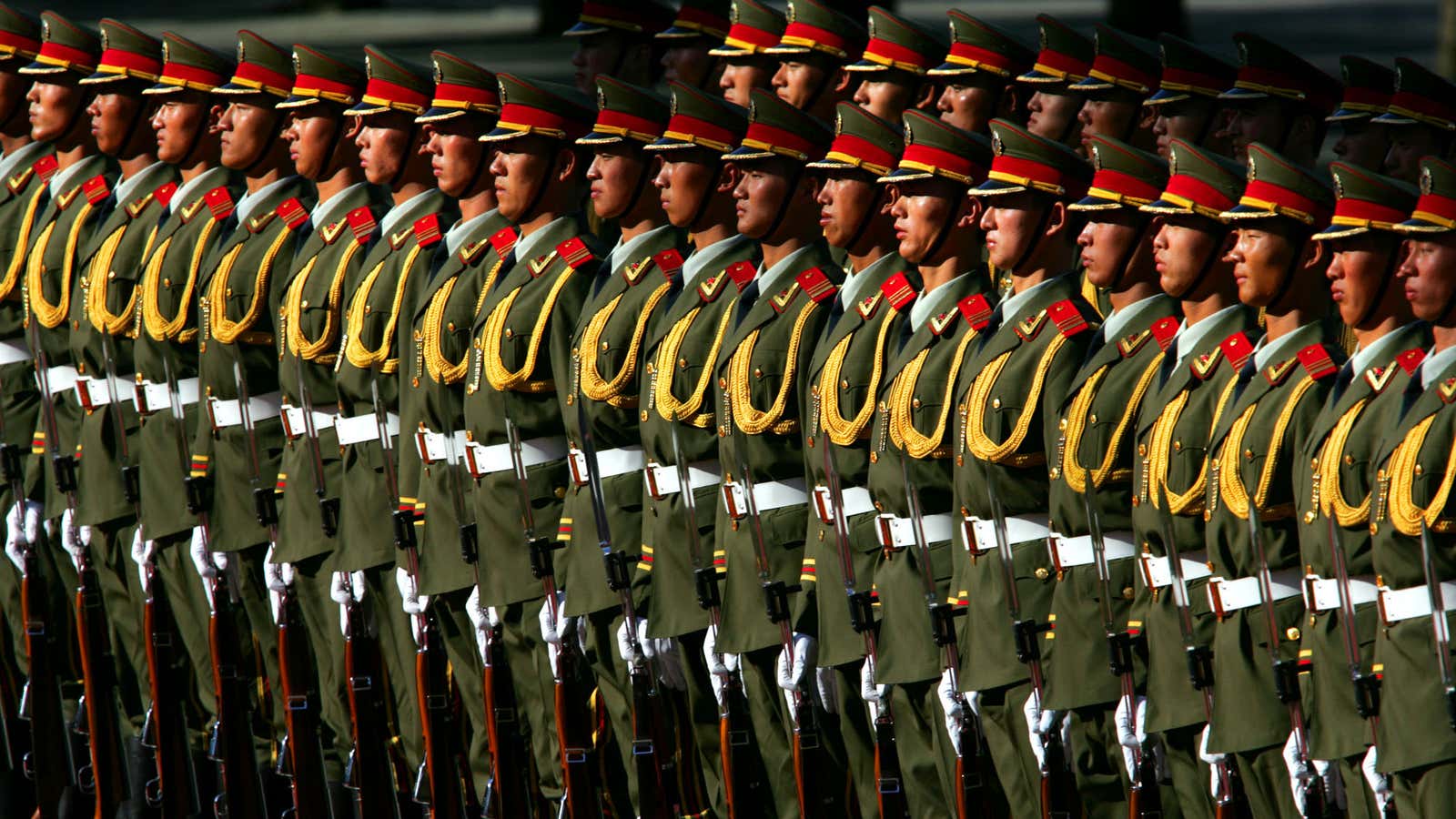The recent spate of hacking attacks alleged to have originated from China’s military has taken many world governments, business leaders and individuals largely by surprise.
But it shouldn’t have. Chinese generals have been talking about cyberwarfare for many, many years.
The first signs of China’s interest in cyberwarfare began with Major General Wang Pufeng, a former Director of the Strategy Department at the Academy of Military Science in Beijing. Now regarded as the founding father of “Chinese information warfare” (link in Chinese), Wang’s 1995 paper titled “The Challenge of Information Warfare” (a more literal translation of the Chinese, 信息战争与军事革命, would be “Information Technology and Military Revolution”) analyzed the way the US had used information technology to win battles. Wang urged the Chinese military to ”strive for an active approach in a reactive situation and use every means possible to destroy the opponent’s information superiority and transform our inferior position in information.”

Here’s a longer excerpt from his analysis of how cyberwarfare would play out (emphasis is ours):
The large-scale importation of information technology deep into the field of warfare will inevitably bring about a military revolution. This revolution has actually already started. Those who perceive it first will swiftly rise to the top and have the advantage of the first opportunities. Those who perceive it late will unavoidably also be caught up in the vortex of this revolution. Every military will receive this baptism.
This revolution is first a revolution in concepts, then it is a revolution in science and technology, equipment, troop strength, strategy, and tactics as well as a revolution in training. Thus, the issue of how to adapt to and achieve victory in the information warfare which we will face from now on is an important question which we need to study carefully.
By going on the offensive, Wang reasoned, a China still lacking the IT superiority of the West could gain the upper hand.
His strategy apparently caught on. Four years later, in 1999, Generals Qiao Liang and Wang Xiangsui (links in Chinese) authored a book called “Unrestricted Warfare,” detailing a concept they describe as “warfare which transcends all boundaries and limits.” The gist was that innovative thinking could give China the edge over a US concetrated on developing newer and more complicated machines (emphasis is ours):
As we see it, a single man-made stock-market crash, a single computer virus invasion, or a single rumor or scandal that results in a fluctuation in the enemy country’s exchange rates or exposes the leaders of an enemy country on the Internet, all can be included in the ranks of new-concept weapons….
The new concept of weapons will cause ordinary people and military men alike to be greatly astonished at the fact that commonplace things that are close to them can also become weapons with which to engage in war. We believe that some morning people will awake to discover with surprise that quite a few gentle and kind things have begun to have offensive and lethal characteristics.
And that was back in 1999. Here are some examples of the sorts of “unrestricted warfare” that Qiao Liang and Wang Xiangsui had in mind (again, our emphasis):
Such means and methods include psychological warfare (spreading rumors to intimidate the enemy and break down his will); smuggling warfare (throwing markets into confusion and attacking economic order); media warfare (manipulating what people see and hear in order to lead public opinion along); drug warfare (obtaining sudden and huge illicit profits by spreading disaster in other countries); network warfare (venturing out in secret and concealing one’s identity in a type of warfare that is virtually impossible to guard against); technological warfare (creating monopolies by setting standards independently); fabrication warfare (presenting a counterfeit appearance of real strength before the eyes of the enemy); resources warfare (grabbing riches by plundering stores of resources); economic aid warfare (bestowing favor in the open and contriving to control matters in secret); cultural warfare (leading cultural trends along in order to assimilate those with different views); and international law warfare (seizing the earliest opportunity to set up regulations)….
Some of these sound silly. But others, such as “media,” “technological” and “resource warfare,” have a more plausible‚ even familiar, ring to them. Taken alongside the strong likelihood that the systematic cyberattacks have been state-sponsored, it seems not entirely far-fetched that China has been spending nearly two decades planning forms of warfare that the West hasn’t even considered. Welcome to a new world, folks.
